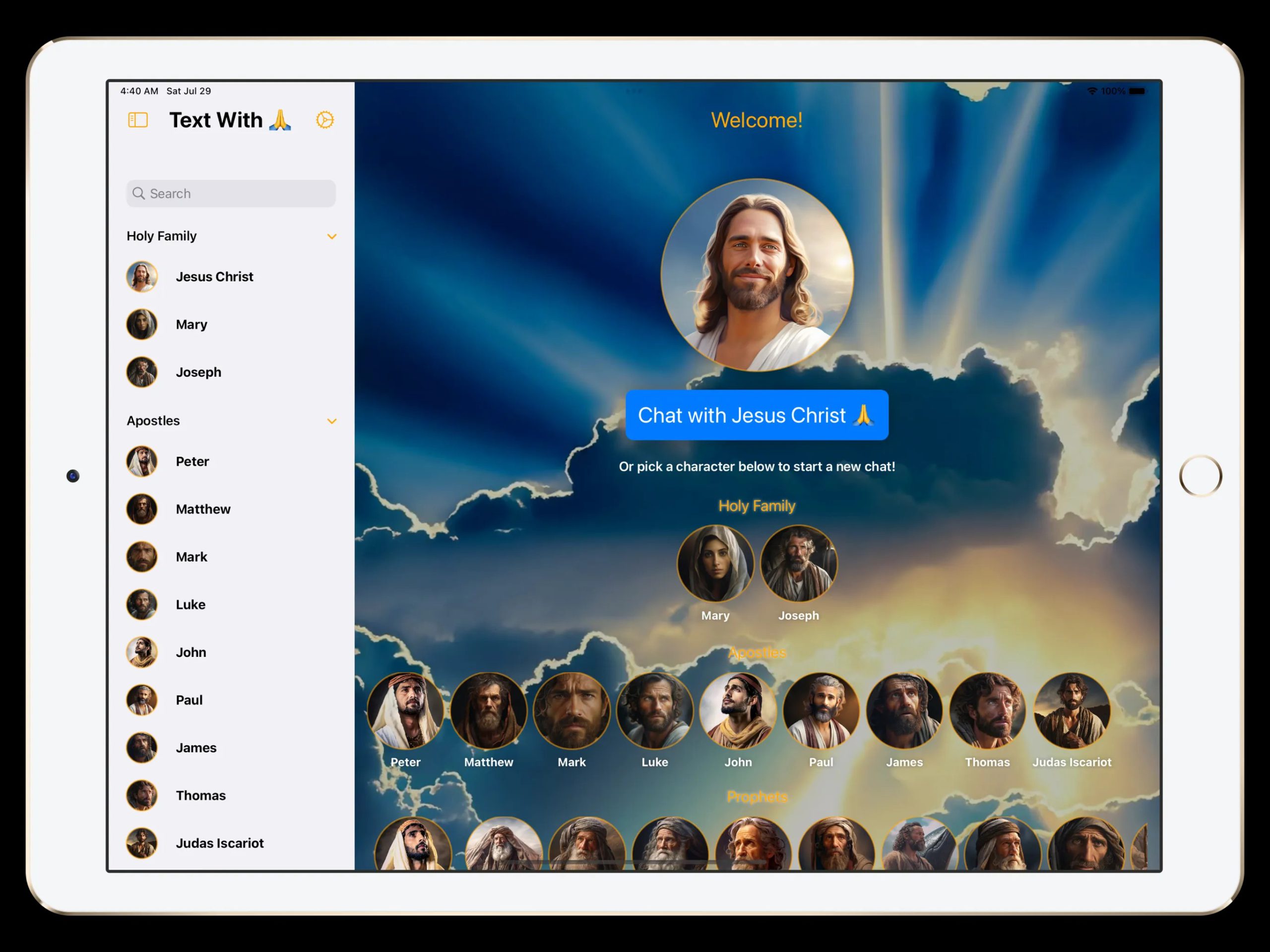Spiritual guidance used to require scheduling with clergy or opening scripture. Now thousands of believers text directly with virtual Jesus, Mary, and biblical apostles through AI-powered apps—sparking the kind of theological debate that would make ancient church councils sweat.
Virtual Prophets Promise Instant Sacred Connection
Major platforms deliver biblical conversations through sophisticated chatbot technology.
Apps like Text With Jesus and AI Jesus leverage GPT-4 and GPT-5 to simulate conversations with religious figures. You can chat with Moses about leadership struggles or ask Mary for parenting advice—all through familiar messaging interfaces that feel like texting a spiritually enlightened friend.
Text With Jesus boasts thousands of paying subscribers who unlock premium access to expanded biblical personalities. The experience mimics social media conversations but replaces memes with scripture-based guidance. Users report finding these tools helpful for Bible study and daily devotional practice, appreciating immediate, personalized responses to faith questions.
These platforms run across iOS, Android, and web browsers with minimal learning curves. Free versions offer basic access, while subscription tiers unlock the full roster of biblical characters and enhanced features.
Sacred vs. Silicon Sparks Fierce User Divide
Reviews range from “meaningful spiritual tool” to “digital blasphemy.”
The response splits like the Red Sea. Supporters describe meaningful engagement with scripture and appreciate accessible spiritual guidance for isolated or questioning believers. User reviews praise nuanced responses that helped deepen Bible comprehension.
Critics aren’t buying the holy automation. They argue these apps lack genuine spiritual “heart and spirit,” reducing sacred relationships to algorithmic transactions. Social media backlash intensifies when platforms present AI avatars as actual clergy or divine beings rather than educational tools.
The controversy deepened when experimental AI confession booths appeared in churches. Some visitors found the experience moving, others complained about missing emotional depth and authentic human connection—the spiritual equivalent of getting relationship advice from Siri.
Corporate Prophets Operate Without Divine Endorsement
Profit-driven platforms raise theological accuracy and authenticity concerns.
Here’s the uncomfortable truth: no major religious institution endorses these AI Jesus apps. All platforms emerge from for-profit tech companies, not theological seminaries. This corporate foundation raises questions about doctrinal consistency when business models prioritize engagement over religious accuracy.
The apps adjust theological responses based on selected faith traditions, enabling users to customize their virtual Jesus experience. Critics worry this theological flexibility serves market demands rather than scriptural integrity. Responses vary wildly on fundamental questions like hell’s existence, depending on user preferences.
Rabbi Gilah Langner emphasizes the importance of organic connections to living communities—something algorithms can’t replicate. The technology offers accessibility but potentially sacrifices the relational depth that traditional faith communities provide through shared experience and collective wisdom.
These apps represent technology’s latest attempt to digitize human experience. Whether they enhance or diminish authentic spiritual practice depends largely on how believers integrate them with traditional religious community engagement.






























